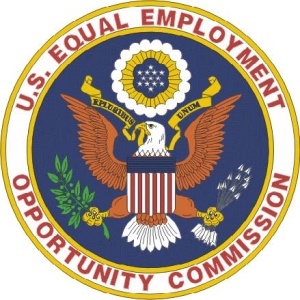Wellness programs have become a key tool for employers looking to improve workforce health, boost engagement, and manage healthcare costs. However, the legal landscape surrounding incentives in workplace wellness programs has remained in flux since the U.S. Equal Employment Opportunity Commission (EEOC) first introduced guidance on the subject in 2015.
As of 2025, there are still uncertainties surrounding what constitutes a “voluntary” wellness program under the Americans with Disabilities Act (ADA) and the Genetic Information Nondiscrimination Act (GINA). Employers offering financial or non-cash incentives—such as premium discounts, wellness rewards, or even gift cards—should be aware of the latest developments to ensure compliance while maintaining an effective engagement strategy.
A Look Back: EEOC’s 2016 Final Rules
In 2016, the EEOC finalized rules stating that:
- Employers could offer incentives up to 30% of self-only health coverage costs for participation in wellness programs that include medical screenings or health assessments.
- Participation in wellness programs had to be voluntary, meaning employees could not be penalized or denied coverage for non-participation.
- Employers had to ensure confidentiality of any collected medical information and provide clear notice on how data would be used.
However, these rules were challenged in court and ultimately struck down in 2019. This left a regulatory gap, creating uncertainty around how much incentive—if any—could be offered without making participation seem coercive.
Legal Challenges and EEOC’s Withdrawn 2021 Rules
In response to a lawsuit from the AARP, which argued that large financial incentives could make wellness programs involuntary, the EEOC's incentive rules were vacated.
In 2021, the EEOC attempted to introduce new rules suggesting that only “de minimis” incentives—such as a small gift card or water bottle—should be allowed. However, these rules were withdrawn before taking effect, leaving employers without clear guidance.
Where Things Stand in 2025
With no current federal regulations reinstating specific incentive limits, courts have begun evaluating wellness program incentive structures on a case-by-case basis. A recent class-action lawsuit in Illinois (2024) suggests that courts may scrutinize whether incentives—especially significant premium discounts or cash rewards—compromise the “voluntary” nature of wellness programs.
This uncertainty presents challenges for HR teams, benefits administrators, and rewards program managers trying to design compliant and engaging workplace wellness initiatives.
What Employers Should Do Now
Until the EEOC issues updated regulations, employers should proceed with caution:
- Avoid high-value incentives that could be seen as coercive. While offering incentives like small gift cards, wellness credits, or merchandise remains common practice, employers should ensure they do not pressure employees into participation.
- Review program communication to emphasize choice. Employees should clearly understand that participation is optional, and non-participation should not impact their employment status or benefits.
- Maintain strong privacy and security measures. Any health data collected must be handled in compliance with HIPAA and other privacy laws.
- Monitor legal developments. Since this area of law is still evolving, staying informed and consulting legal counsel when structuring wellness incentives is critical.
Final Thoughts
For organizations using incentives to drive engagement in wellness programs, finding the right balance between participation and compliance is more important than ever. While wellness initiatives can be valuable tools for promoting employee well-being and reducing healthcare costs, the safest approach in 2025 is to offer low-value, voluntary incentives while awaiting further regulatory clarity.
Employers should stay alert for potential EEOC updates and continue structuring wellness rewards in a way that prioritizes both compliance and employee engagement.
For more information on wellness plan incentives, contact our team today.
Image courtesy of govloop.com










